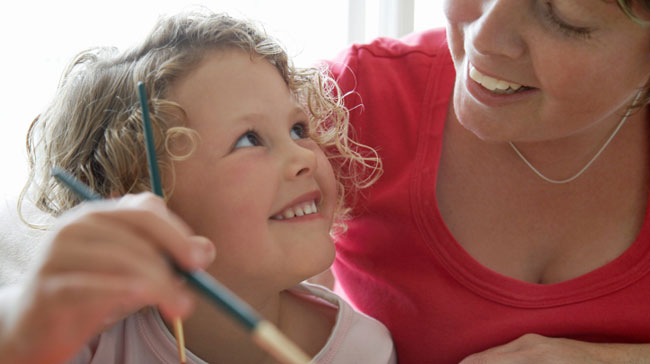Be your child’s emotional coach
Give your children the tools to manage their own emotions, says clinical psychologist Dr Stephen Briers, and you'll prime them to become confident, well-adjusted adults

Elsa is alone in a room. In front of her is a plate on which sits a single marshmallow. If she can hold on for just a few more minutes Elsa knows she will be rewarded with two marshmallows. But her pangs of hunger are growing and that marshmallow in front of her looks pretty tempting. The clock is ticking.
When you are four years old, this kind of dilemma can push you to your limits, which is precisely why Walter Mischel used it in a seminal study of self-control in the 1970s. Two-thirds of the children held out, but the real surprise came when Mischel's colleagues followed up the children 12 to 14 years later. It turned out that the 'resisters' were not only outperforming the 'yielders' academically, but were also better adjusted, less prone to angry outbursts and more socially able.
In short the resisters demonstrated convincingly higher levels of emotional intelligence.
Coping strategies
Fortunately, Mischel's study also indicated that the resisters used various strategies to cope with frustration: some shut out temptation by covering their eyes or going to sleep while others made up songs. So there is hope. Techniques can be learned and, as parents, we're in a prime position to impart strategies of emotional intelligence. So how do we help a child start to think and behave more like a resister than a yielder?
Categorising feelings
If you want a child to regulate his emotional life then you had better start helping him understand and categorise his feelings. This was the message that Lisa Feldman Barrett, professor of psychology at Boston College, presented to the US House of Representatives in December. She found that research subjects who used words such as anger, sadness and fear indiscriminately lived much more emotionally turbulent lives than those who could make meaningful distinctions between moods.
Developing emotional literacy is something you can start from an early age. Try collecting pictures from magazines that demonstrate a range of emotions and practise identifying them with your child. These images can then be used for games and other activities. How other family members deal with their feelings, and the attitudes they hold about them, can have a significant impact upon a child's emotional development. It's no surprise that families that are emotionally fluent and skilled at expressing warmth and affection tend to raise emotionally expressive children.
Emotional development
How your family deals with negative emotions is also important to your child's development. An accepting, non-judgemental attitude is likely to produce a better-adjusted, more resilient child, while children of parents who criticise or dismiss these emotions often end up expressing more intense negativity towards their peers. Let your child know that there is no such thing as an unacceptable feeling, only unacceptable actions. Emphasise that the feelings we avoid and ignore are often the ones that cause us problems in the long term.
Similarly, don't be afraid to let your child see you and your partner argue as long as your child can also see how you resolve an argument. Couples who adopt a problem-solving approach to conflict, show willingness to compromise and find ways to express positive feelings towards their partner even in the heat of a fight are modelling useful skills likely to help children become more socially skilled.
A few weeks ago, Rose mentioned to me that her 12-year-old son, Sam, had come home from school with a scratched face. 'He said that he'd been hit by a boy at school,' she said. 'I asked whether he'd hit him back and he said, 'I wanted to. But if my mum was as ill as his, I'd probably be acting like an idiot, too'.'
Sam's self-restraint demonstrates the key role of empathy in helping children master their more anti-social feelings and impulses. Research suggests that empathy training acts as a far more effective brake on children's bad behaviour than either punishment or reward, and is strongly associated with other traits of emotional maturity.
Reaching maturity
You can help your child develop empathy by giving them a first-hand experience of what it's like. Find a regular time in the day to listen to your child, preferably when you are both relaxed. Look for a routine activity that creates opportunity without the pressure to 'share' maybe doing a crossword together or even the washing up. When your child does talk, give your full attention and try and explicitly identify the feelings behind what he or she is saying. It's also important to reinforce your child's empathic behaviour with praise and respect.
Whether we do so consciously or not, all parents instill emotional habits in their children that will take them into adulthood. We have the chance to ensure those habits are good ones. If we can give children the skills they need to regulate and master their feelings at an early age, all the evidence suggests that we will be making a significant contribution towards their future happiness and a more peaceful home life for ourselves.








